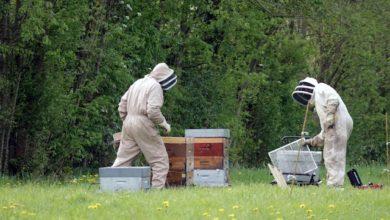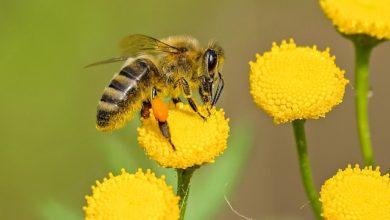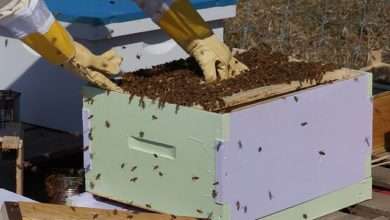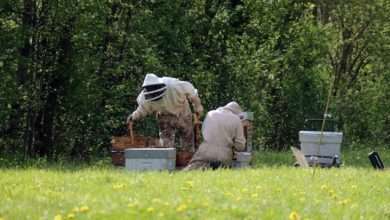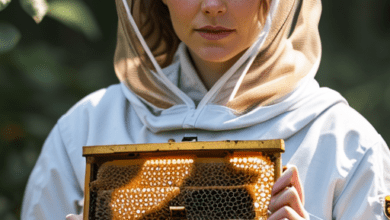Everything You Need to Know About Organic Beekeeping
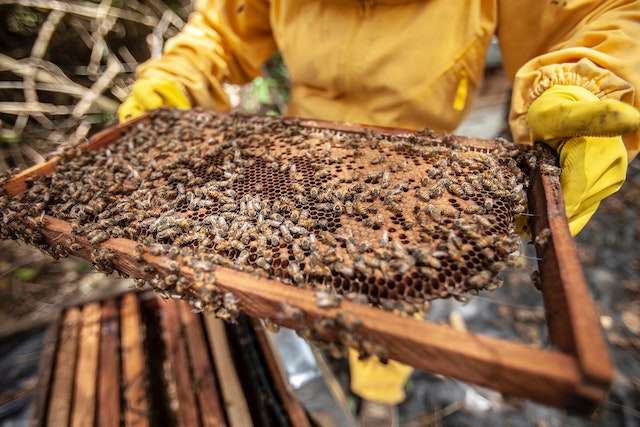
Keeping honeybees has been a tradition for centuries, and the benefits of bees extend far beyond the sweet honey they produce. Honeybees are essential to the pollination of both wild and cultivated plants, and their products are used for various commercial and medicinal purposes.
The process of keeping bees in a manner that protects both the bees and the environment has become extremely popular. This chapter will delve into the basics of organic beekeeping, from its definition and importance to the increasing demand for organic honey and beeswax.
Definition of Organic Beekeeping
Organic beekeeping is the practice of beekeeping that eschews the use of any synthetic chemicals or artificial substances. This means that all the tools and equipment used, as well as any supplements given to bees, must be organic. This method of beekeeping prioritizes the overall wellbeing of the bees, their natural environment, and the purity of the products they produce.
Importance of Honeybees
Honeybees are among the most important creatures in the insect world, playing a critical role in pollination. It is estimated that honeybees pollinate around 70% of the world’s crops, making them essential for the growth of many fruits and vegetables. Without their pollination, food production could be severely impacted, and the ecosystems they inhabit could suffer greatly.
The Increasing Demand for Organic Honey and Beeswax
As more people become aware of the environmental and health benefits of organic, natural products, the demand for organic honey and beeswax has skyrocketed. Organic honey and beeswax are free from artificial additives and contaminants, making them healthier alternatives to other products.
With the growing concern over the long-term effects of traditional farming, many people are turning to organic beekeeping as a sustainable, eco-friendly solution. As the demand for organic honey and beeswax continues to increase, so will the need for responsible, ethical beekeeping practices.
Traditional Beekeeping Methods
Traditional beekeeping methods involve using pesticides and chemicals to control pests and diseases that can harm bees. While such techniques can be effective in the short term, they often have negative consequences in the long term. These chemicals can accumulate in beeswax and honey, leading to contamination that can harm both bees and humans who consume the products.
Another issue with traditional beekeeping methods is that they can have a negative impact on bees’ health and behavior. Pesticides and chemicals can weaken bees’ immune systems, making them more vulnerable to diseases and infections. They can also interfere with bees’ communication and navigation abilities, making it difficult for them to find food sources and return to their hives.
Organic beekeeping, on the other hand, is focused on natural and non-toxic techniques that promote bees’ health and well-being. Instead of using pesticides and chemicals, organic beekeepers rely on methods like using natural predators to control pests and diseases, providing access to clean water sources and diverse food sources, and rotating hives to prevent build-up of disease and pests. These techniques can help bees to build strong immune systems and thrive in their environments.
Principles of Organic Beekeeping
As concerns about the environment and the effects of chemicals on our food continue to grow, organic beekeeping has become a popular alternative to conventional beekeeping.
Organic beekeeping is a method of beekeeping that focuses on the use of natural materials and avoiding the use of chemicals and pesticides. In this chapter, we will explore the principles of organic beekeeping and why it is important.
- No use of chemicals and pesticides
One of the main principles of organic beekeeping is to avoid the use of chemicals and pesticides. Many conventional beekeepers use pesticides and chemicals to control pests and diseases, but these can have negative effects on the bees and the environment.
Chemicals and pesticides can harm the bees and reduce their lifespan. In addition, they can contaminate the honey and other bee products.
Organic beekeepers use alternative methods to control pests and diseases. These include using essential oils, such as thyme and eucalyptus, to repel pests, and using mechanical methods, such as screened bottom boards, to control mites.
- The use of natural materials
Organic beekeeping also focuses on the use of natural materials. This includes using natural wax foundations in the hive, rather than plastic or chemically-treated foundations. Organic beekeepers also avoid using synthetic materials, such as plastic and nylon, in their equipment.
In addition, organic beekeepers use natural methods for feeding their bees. This includes providing the bees with natural sources of pollen and nectar, rather than feeding them with sugar water or high-fructose corn syrup.
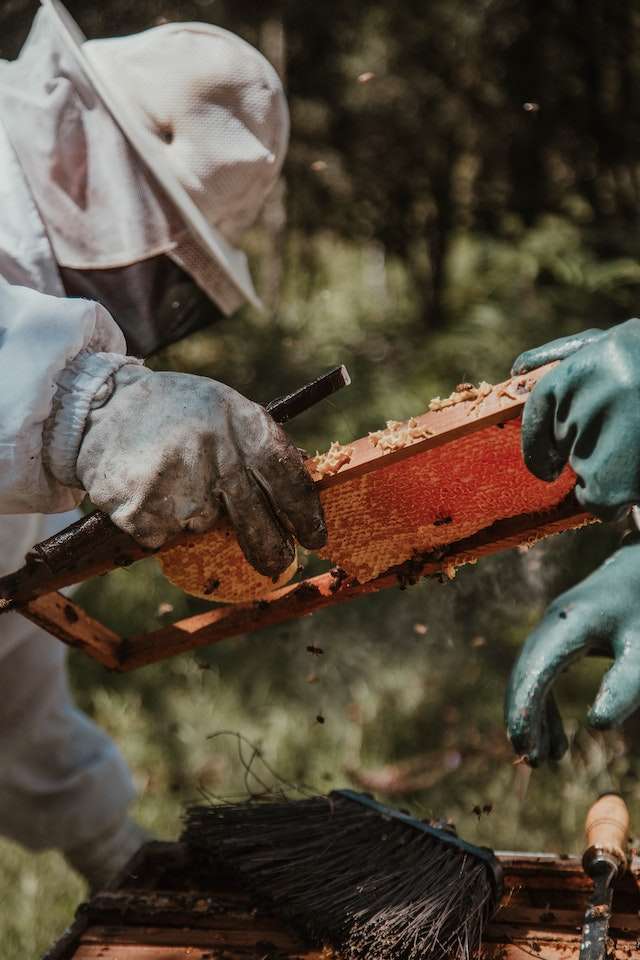
- The importance of biodiversity and natural habitats
Finally, organic beekeeping emphasizes the importance of biodiversity and natural habitats. Bees are an important part of our ecosystem, and their survival depends on a diverse range of flowers and plants. Organic beekeepers work to preserve natural habitats and promote biodiversity by planting native plants and avoiding the use of pesticides that can harm other insects and animals.
Benefits of Organic Beekeeping
Beekeeping is a crucial practice that yields numerous benefits to the environment and human life. However, conventional beekeeping methods that rely on synthetic pesticides and antibiotics have raised concerns about the safety of the honey, the health of the bees, and the environment.
Organic beekeeping, on the other hand, offers a more sustainable and ethical approach to beekeeping that promotes the health of the bees, the quality of the honey, and the ecosystem balance. In this chapter, we will explore the benefits of organic beekeeping in detail.
- Healthier and Stronger Bees
Organic beekeeping practices prioritize the well-being of the bees. It involves using natural remedies to prevent and treat diseases and pests, rather than synthetic chemicals that can harm the bees and contaminate the honey.
Additionally, organic beekeepers avoid feeding their bees with sugar syrup and instead provide them with natural nectar and pollen to ensure that they have a well-balanced diet. As a result, organic bees are healthier, stronger, and more resistant to diseases, pests, and environmental stressors such as climate change.
- Higher Quality Honey and Beeswax
The use of synthetic pesticides and antibiotics in conventional beekeeping can lead to the contamination of honey and beeswax with toxic residues. Organic beekeepers, on the other hand, produce honey and beeswax that are free from synthetic chemicals, making them safer and of higher quality.
Moreover, organic beekeepers employ sustainable harvesting practices that prioritize the welfare of the bees while collecting honey and beeswax. This approach ensures that the bees have enough food reserves for the winter and that their natural behavior is not altered.
- Better Ecosystem Balance and Biodiversity
Organic beekeeping promotes biodiversity and ecosystem balance by providing a conducive habitat for bees and other pollinators. Organic beekeepers integrate their apiaries into the natural landscape, taking into account the local flora and fauna. They also avoid monoculture practices that destroy natural habitats and offer little nutrition to bees and other pollinators. By promoting biodiversity, organic beekeeping supports the health of the ecosystem and enhances the productivity of crops that rely on pollinators.
Practices of Organic Beekeeping
Organic beekeeping is a holistic approach that prioritizes the health and well-being of honeybees, while also considering the impact on the environment. Here are some of the practices of organic beekeeping that help achieve this:
- Natural Beehive Constructions
One of the main principles of organic beekeeping is allowing bees to live as naturally as possible. This includes using natural hive constructions, such as hollowed-out logs or top-bar hives, rather than modern commercial hives made of plastic or metal.
These natural constructions provide bees with a more familiar habitat, as well as better insulation, ventilation, and humidity control. They also encourage the bees to build their own comb, which promotes greater health and resistance to disease.
- Selecting Diverse and Disease-Resistant Bee Breeds
Another important practice in organic beekeeping is selecting diverse and disease-resistant bee breeds. Commercial beekeeping often relies on monoculture breeds, which are bred to maximize honey production and may not have natural resistance to common bee diseases and pests.
Organic beekeepers, on the other hand, look for breeds that are locally adapted and display a variety of traits, such as hygienic behavior, brood patterns, and resistance to Varroa mites and other pests. This promotes greater genetic biodiversity and healthier colonies that are more capable of adapting to changing conditions.
- The Use of Natural Remedies for Bee Diseases
When bee diseases do occur in organic beekeeping, the focus is on using natural remedies rather than synthetic chemicals or antibiotics. For example, essential oils derived from plants like thyme or tea tree can be used to treat mites and fungal infections.
Organic acids, such as formic acid, can also be used to manage Varroa mites. In addition, organic beekeepers focus on preventative measures, such as heat treatments and maintaining healthy bees through good nutrition, reducing stress, and providing a clean hive environment.
Challenges of Organic Beekeeping
As the demand for organic honey and other bee products continues to rise, so has the number of beekeepers adopting organic practices. Organic beekeeping aims to promote the health of bees and their environment by avoiding the use of chemical pesticides and antibiotics. However, organic beekeeping comes with its set of challenges that beekeepers must navigate to maintain hive health and productivity.
- The Risk of Bee Diseases and Pests
One of the significant challenges that come with organic beekeeping is the increased risk of bee diseases and pests. Unlike conventional beekeeping that relies on chemical treatments to keep pest and disease infestations at bay, organic beekeepers must rely on natural methods of pest and disease control.
Natural methods such as essential oils, sugar dusting, and drone trapping can help reduce mite populations and diseases such as American Foulbrood, which can decimate bee colonies. However, organic beekeepers must stay vigilant and be proactive in monitoring their hives for signs of infestations and diseases.
- The Need for Regular Bee Health Inspections
To maintain healthy and productive colonies, beekeepers must regularly inspect their hives for signs of illness, pest infestations, and other issues. Organic beekeepers must be meticulous in these inspections to detect and manage potential issues before they become severe. Regular hive inspections also allow beekeepers to track the growth and health of their colonies, adjust any weak spots, and recognize the latest trends in beekeeping.
- The Limited Availability of Organic Beekeeping Supplies
Another challenge of organic beekeeping is the limited availability of organic beekeeping supplies, including beekeeping equipment and feed. Conventional beekeeping suppliers typically offer a wider range of products that may include chemical treatments, but organic beekeeping suppliers are fewer in number, and the products may be more expensive.
Beekeepers must plan and order their organic supplies well in advance to ensure the timely delivery of everything they need for their colonies.
Conclusion
Organic beekeeping is a critical practice for the health and wellbeing of both bees and humans. Consumers can directly support organic beekeeping practices through their purchasing choices and advocacy efforts.
Furthermore, the potential for organic beekeeping to inspire sustainable agricultural practices highlights the need for widespread adoption of these practices to protect the health of our planet for generations to come.
FAQ
What makes Organic Beekeeping different from conventional beekeeping?
- Organic Beekeeping means using natural methods to manage bee colonies, without the use of synthetic chemicals or antibiotics. This helps to maintain the health of the bees and the environment, and produce a more sustainable product.
How do I start Organic Beekeeping?
- Start by researching the best practices and techniques for Organic Beekeeping, and purchasing organic beekeeping supplies such as hives, protective gear, and natural treatments for pests and diseases. It’s also important to seek guidance from experienced beekeepers or attend workshops and classes.
What are the benefits of Organic Beekeeping for the environment?
- Organic Beekeeping reduces the use of harmful chemicals and promotes the growth of native plants, improving the health of the ecosystem. By supporting biodiversity and using sustainable practices, Organic Beekeeping helps preserve the environment for future generations.
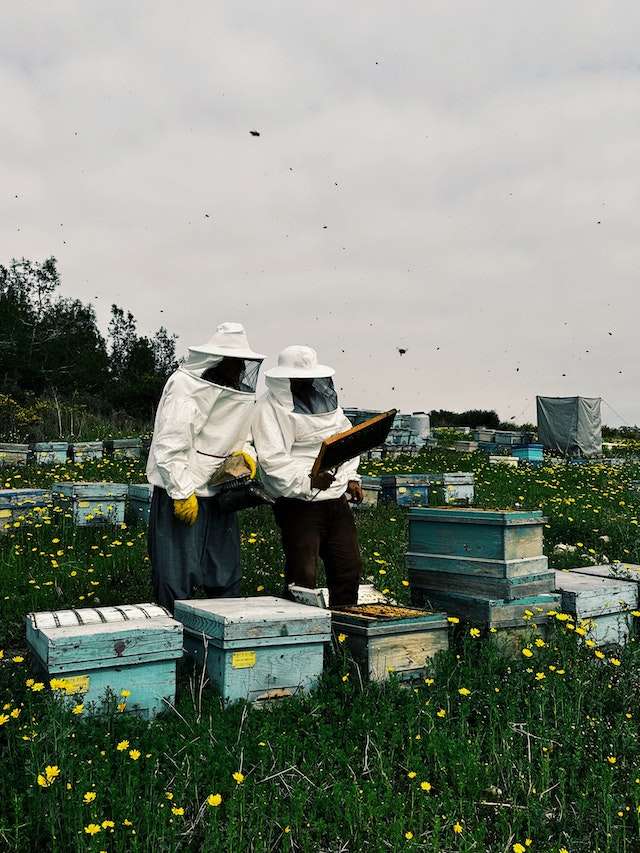
What kind of bees are suitable for Organic Beekeeping?
- Any bee species can be used for Organic Beekeeping, but it’s important to choose a species that is well-adapted to the local climate and environment. It’s also important to select bees that are strong and resistant to pests and diseases, as well as bees that are good honey producers.
What is the best way to care for bee colonies in Organic Beekeeping?
- Organic Beekeeping involves natural methods of managing bee colonies such as regular inspections, hive cleaning, and using natural treatments for pests and diseases. It’s important to keep an eye on the health of your colonies and make sure they have access to sufficient food and water.
How can I prevent pests and diseases in my bee colonies?
- Organic Beekeeping promotes the use of natural treatments for pests and diseases, such as essential oils, organic acids, thermal treatments and plant extracts. These can help to control pests and diseases while maintaining the health of the bees and the environment.
How can I ensure that my bees have a steady supply of food?
- Bees rely on a variety of nectar sources from flowers to collect their food. Organic Beekeeping involves promoting the growth of native plants and avoiding the use of synthetic pesticides and fertilizers, which can harm bees and reduce their food supply. It’s also important to avoid over-harvesting honey, and providing supplementary feeding if necessary.
How can I get the most out of my organic honey harvest?
- Organic honey can be used for a variety of purposes, including cooking, baking, and as a natural sweetener. It’s important to store honey properly in a cool, dark place to prevent crystallization. You can also experiment with different flavors and varieties of honey, and share your bounty with friends and family.
